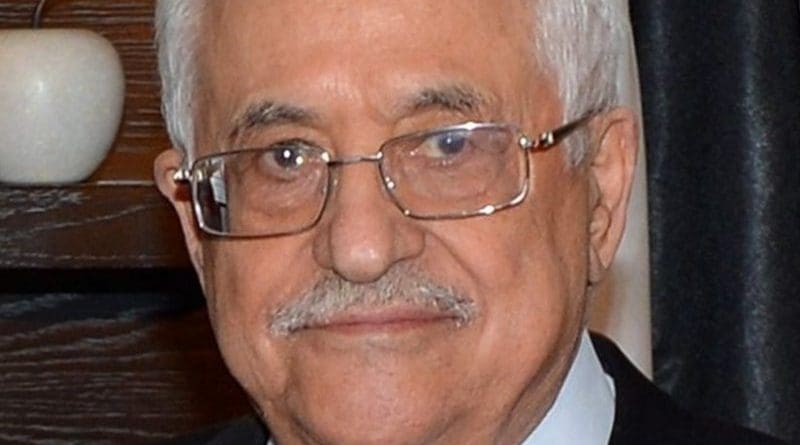Re-Election Of Abbas As Fatah Chief – OpEd
By Ramzy Baroud
Historically, Mahmoud Abbas has been the least popular among Fatah leaders. Yet, he has remained in one top position or the other. He has just been re-elected as the head of his political party, Fatah, during its seventh congress held in Ramallah on Nov. 29. At 81, he is the leader of Fatah, head of the Palestine Liberation Organization (PLO) and president of the Palestinian Authority.
His speech of nearly three hours on Nov. 30 had nothing new in it. His impractical rhetoric represents the depth of the crisis among Palestine’s political elites. The numerous rounds of applause that Abbas’ speech received from the nearly 1,400 supporters who attended the conference is a reflection of the deep-seated political tribalism that now controls Fatah, the dominant PLO party and, arguably, the party that sparked the modern Palestinian revolution. But today’s party is a far cry from its original self.
Fatah’s founders were young, vibrant and educated rebels. Their primary literature from 1959 spoke of their early influences, particularly the guerrilla war of Algeria’s resistance against French colonialism.
“The guerrilla war on Algeria had a profound influence on us,” wrote Abu Iyad. “We were impressed by the Algerian nationalists’ ability to form a solid front, wage war against an army thousand times superior to their own, obtain many forms of aid from various Arab governments and, at the same time, avoid becoming dependent on any of them.”
Certainly, some circumstances have inevitably changed, but many aspects of the conflict have remained the same: Israel’s territorial war, unceasing colonial expansion, backed by the United States’ unhinged imperialism.
Yet, Fatah has changed to the point that its founders would no longer recognize the current political structure from what they had created.
The movement is now more keenly interested in consolidating the power of Abbas’ allies than fighting Israel; top members are conspiring against each other, buying allegiances and ensuring whatever massive financial perks that resulted from Abbas’ Oslo accords remain intact, even after the old leader retires.
Mohammed Dahlan’s political clan was, of course, excluded from the conference. In fact, the reason the conference was held after all these years (seven years have separated it from the last one) is partly to ensure the new Fatah hierarchy is set up in a way to prevent Dahlan’s allies from staging a comeback.
The sad truth is that, regardless of who wins in the current power struggle, Fatah’s descent is inexorable. According to a poll conducted in September 2015, the majority of Palestinians — 65 percent — wants Abbas to resign. The same poll indicated that Dahlan was nowhere near popular (only 6 percent supported him) and Abbas’ allies, Saeb Erekat, and former Prime Minister Salam Fayyad received 4 percent and 3 percent of the votes respectively.
Indeed, there is a chasm between Palestinians and those who claim to represent them, and that rift is growing tremendously.
After Abbas — who was only elected to lead the Palestinian Authority once in 2005 for a period of four years — purged all of his opponents, he sought a new mandate from his supporters.
Predictably, “Everyone voted yes,” a spokesman for Fatah, Mahmoud Abu Al-Hija told reporters.
When “everyone” in Fatah’s top political circle votes for Abbas, while the majority of Palestinians reject him, this leads one to conclude that Fatah is neither a fair representation of the Palestinian people nor is it remotely close to the pulse of the Palestinian street.
Even if one is to ignore the “yes-men” of Fatah, one cannot ignore the fact that the current fight among the Palestinian elites is almost entirely detached from the fight against Israel. Palestinians are victims of daily violence: Israeli settlements are occupying Palestinian hills and are ever expanding, Israeli soldiers roam occupied Palestinian land and Abbas, himself, is not allowed free movement without prior “security coordination” with the Israeli Army.
Moreover, Palestinians are divided among factions, regions and clans; political favoritism, financial corruption and straight-out treason are eating the Palestinian body politic like an incurable cancer. Talk of “unity,” “reconciliation” and “state building” are just that — words — while Palestinians suffer their bitter existence under the boots of soldiers, behind checkpoints, and under the quiet — but maddening — humming of military drones.
Still, the Fatah elites applauded Abbas nearly 300 times during his three-hour speech. What are they applauding, exactly? What has been achieved? What vision did he put forth to end the Israeli occupation?
Much Palestinian land has been lost between Fatah’s sixth congress in 2009 and seventh congress. That is not an achievement but a cause for alarm.

